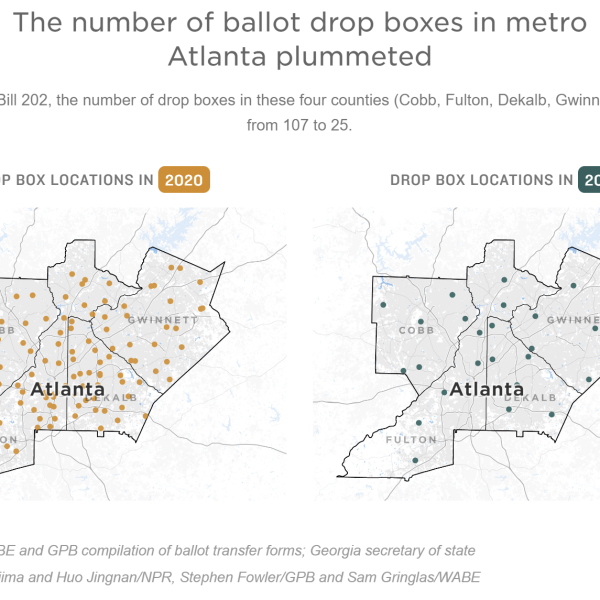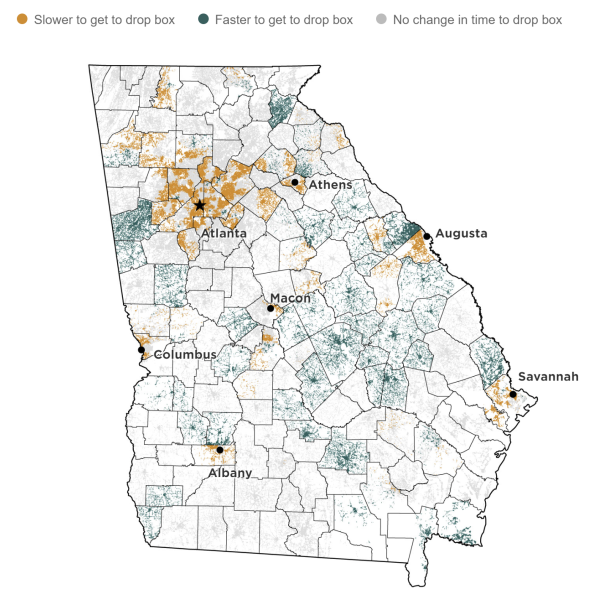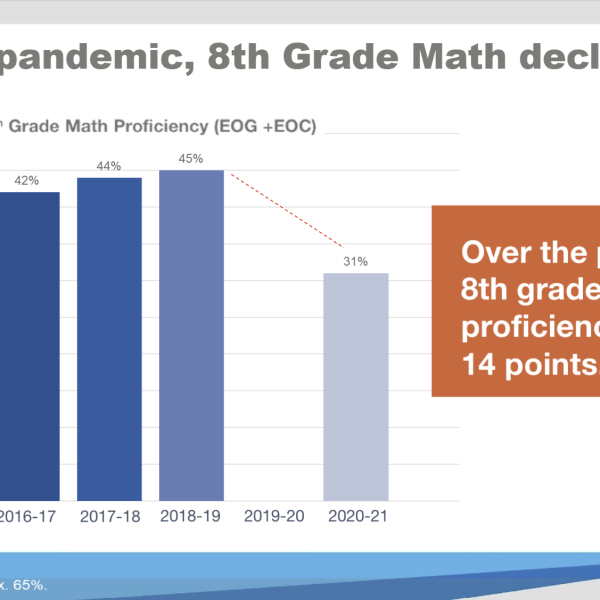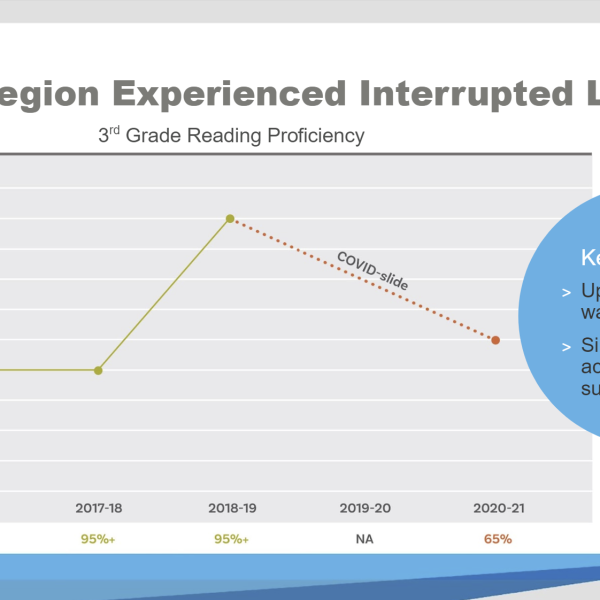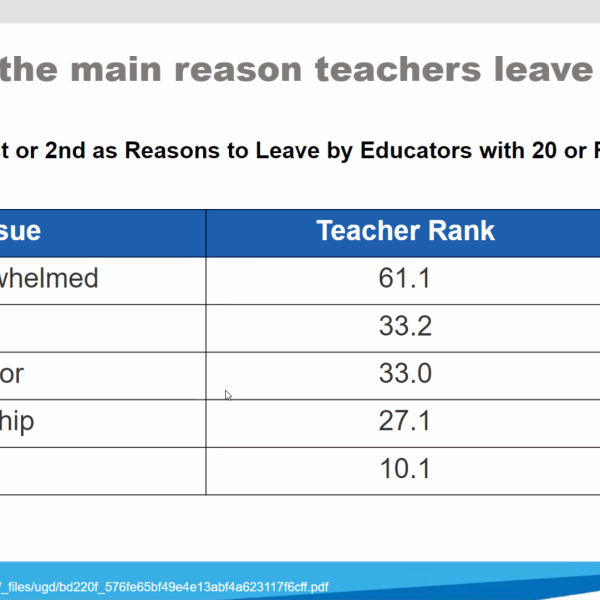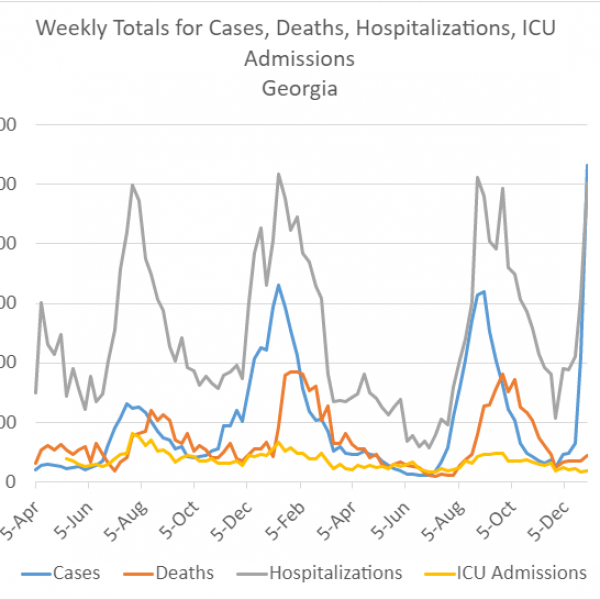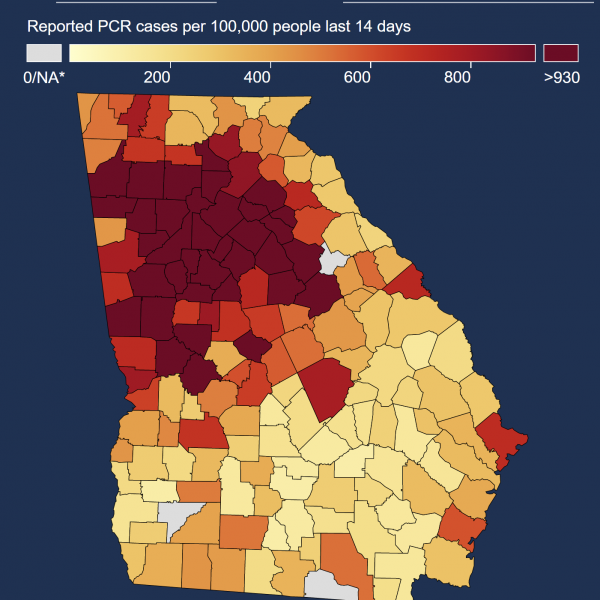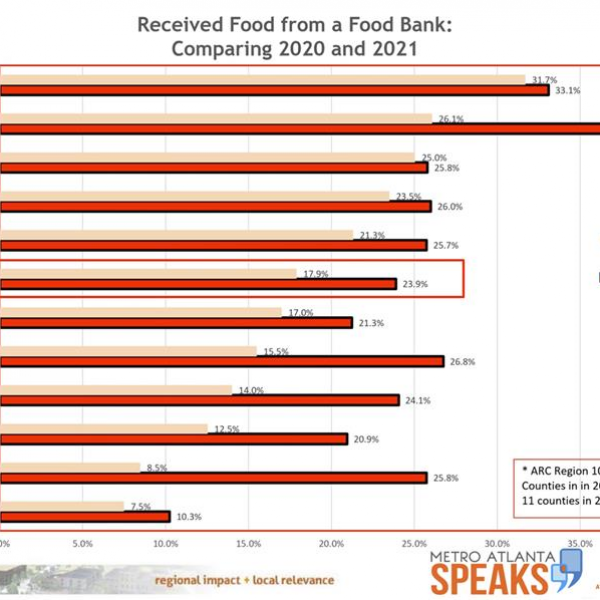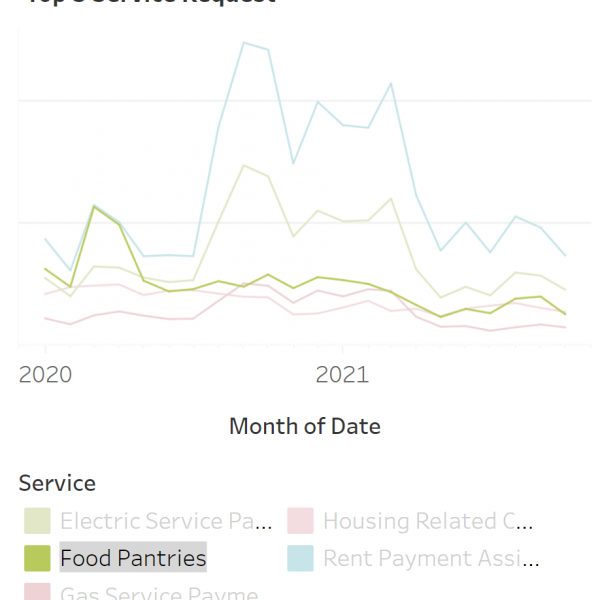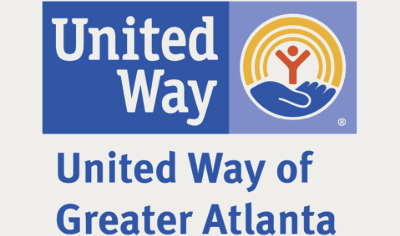Disappearing ballot drop boxes decrease voting accessibility
A new WABE and GPB analyzes the impacts of the newly enacted law (SB 202) that affects the number and location of ballot boxes across the state. The finding point to disparate outcomes, including:
-
More than half of the roughly 550,000 voters who cast their ballot using a drop box in the state’s 2020 general election lived in four metro Atlanta counties — Cobb, DeKalb, Fulton and Gwinnett — where about 50% of the voters are people of color.
-
Under the new law, the number of drop boxes in these four counties plummeted from 107 to 25.
-
Nearly 1.9 million people, a quarter of the state’s voters, have seen their travel time to a drop box increase from the 2020 election.
-
More than 90% of voters who saw an increase in their travel time to a drop box live in cities or suburbs, which are home to most of the state’s minority voters and vote heavily Democratic.


